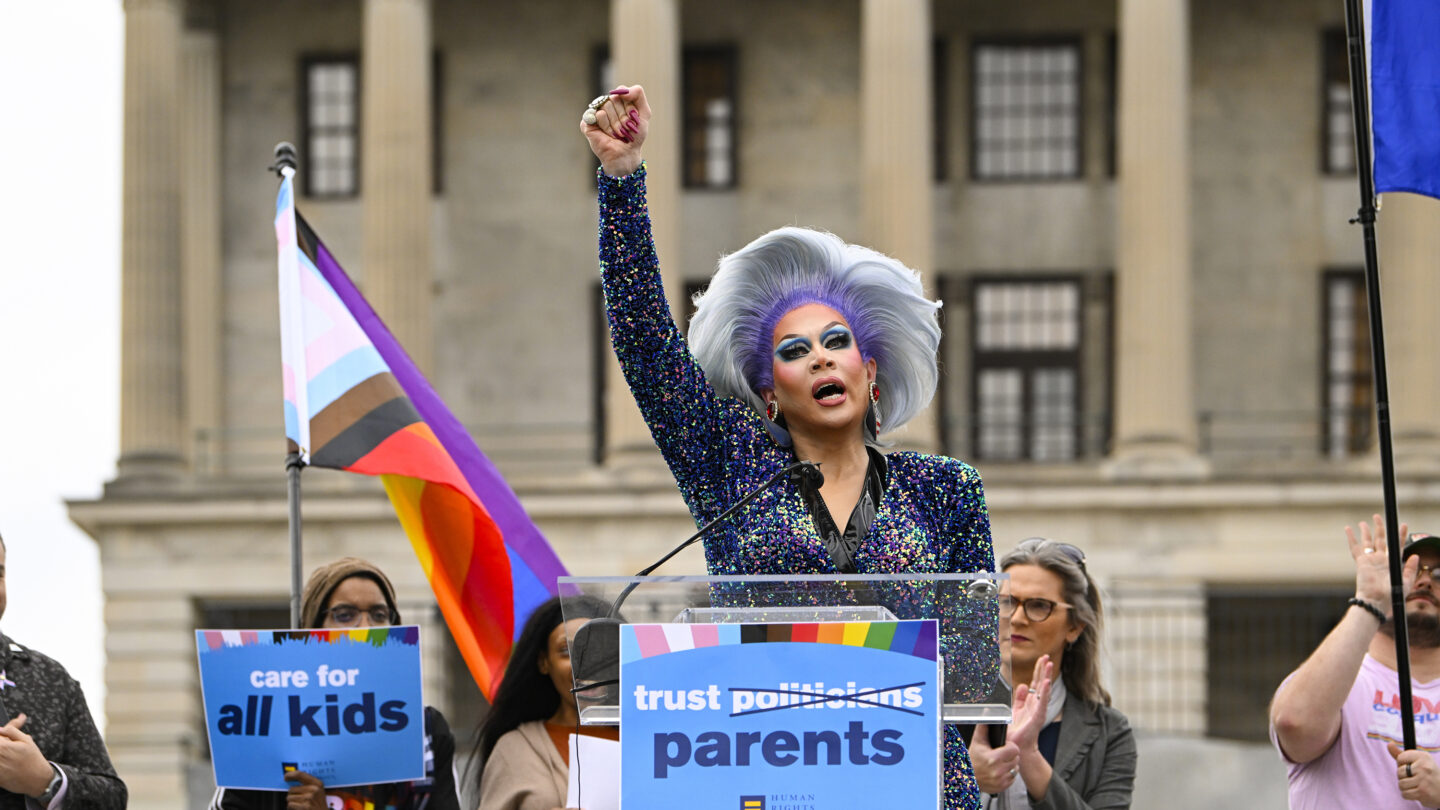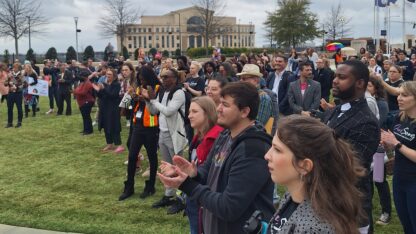The Human Rights Campaign is the nation’s largest advocacy group for lesbian, gay, bisexual, transgender and queer Americans and has been advocating for their rights since 1980, but they say the level of violent rhetoric and number of discriminatory laws being passed in the past year has made this unprecedented warning necessary.
“LGBTQ+ Americans are living in a state of emergency. The multiplying threats facing millions in our community are not just perceived — they are real, tangible and dangerous,” said HRC president Kelley Robinson.
The organization declared a state of emergency for LGBTQ+ people in the U.S. on Tuesday and released a guidebook pointing to laws it deems discriminatory in each state, along with “know your rights” information and resources to help people relocate to states with stronger LGBTQ+ protections.
Jay Brown is a senior vice president with the HRC, and he says, as a trans man, even he has trouble remembering the laws that affect him in each state.
The HRC has tracked more than 500 new laws that were introduced in state legislatures in 41 states, more than 75 of which have been passed since the start of the year.
“We wanted to make sure that it was very clear what the state of the law is as folks navigate where they are living and where they are traveling, too,” said Brown.
Brown said this comes at a time when 1 in 5 hate crimes in the country are directed towards LGBTQ+ people.
“This week we saw a violent protest with Proud Boys in California at a school board meeting where the school board was just passing a resolution for Pride,” said Brown.
Brown said there have been increasing number of discriminatory law passed in each of the past few years, but he said it’s a last ditch effort by those opposed to LGBTQ+ rights, as most Americans, especially younger ones, support equality.
He said more allies are needed to speak up in their workplaces, schools, and among family and friends. He also said people need to contact their lawmakers.
“School board meeting are being attended by anti-LGBTQ+ forces and not enough folks are speaking up from a pro-equality lens,” said Brown.
Brown said the recently passed laws, like Georgia’s gender-affirming care ban and restrictions on trans youth participating in school sports, have caused some families to reconsider where they travel, and even where they live.
According to the HRC, 30% of high school aged transgender youth — approximately 90,100 of the estimated 300,100 transgender youth aged 13-17 in the U.S. — are living in states where they are unable to simply play alongside their friends.
A recent Associated Press analysis found that many bills seeking to ban or restrict gender-affirming health care for transgender youth, who have been the primary targets of state legislation this year, sprang not from grassroots or constituent demand, but from the pens of a few powerful conservative interest groups.
And as Pride Month festivities kick off in other states this week, organizers are beefing up security amid threatened protests by some extremist groups. A mass shooting last fall inside a gay nightclub in Colorado Springs left many LGBTQ+ community members feeling especially vulnerable.
Brown said it will take years to undo the laws passed around the country, unless they can be reversed through major court victories.
“It’s going to be a patchwork of laws, it’s going to be a patchwork of legal cases, that folks in our community are going to have to navigate frankly for years to undo the harms of what has happened over the course of the last six months,” said Brown.
He said his heart is breaking for the families forced to make difficult decisions to adapt to these laws.










